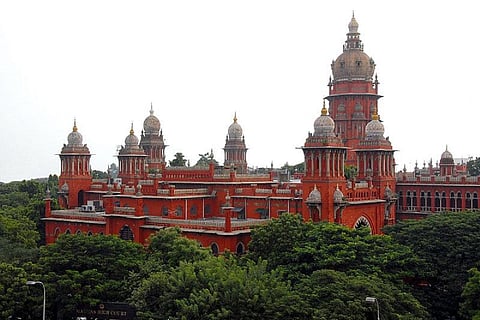

The Madras High Court passed an interim order on Thursday, September 16, staying sub-rules 9(1) and 9(3) of the Information Technology (IT) Rules 2021, which pertain to a Code of Ethics. A month ago, the Bombay High Court had also stayed the same sub-rules, saying that these, prima facie, violated freedom of speech.
On Thursday, the first bench of Chief Justice Sanjib Banerjee and Justice PD Audikesavalu of the Madras High Court granted the stay while passing interim orders on a batch of PILs from carnatic musician T M Krishna and Digital News Publishers Association, consisting of 13 media outlets and another individual, challenging the constitutional validity of the new rules.
“For understandable reasons, petitioners are wary of the oversight mechanism indicated as the final tier of the process of regulation. Prima facie, there is substance to petitioner's grievance that the oversight mechanism to control the media by government may rob the media of its independence, and the fourth pillar, so to say, of democracy may not at all be there,” Chief Justice Sanjib Banerjee and Justice PD Audikesavalu of the Madras High Court said, Bar and Bench reported. It also added that “nothing more” needed to be said on the matter since the Bombay High Court also passed an order staying the operation of sub-rules 9(1) and 9(3), and that the Bombay High Court’s order ought to have a pan-India effect.
The two provisions of the law that were stayed by the Madras and Bombay High Courts deal with adherence to a Code of Ethics laid down in the rules and requires publishers to follow a three-tier self regulatory mechanism. This self regulatory mechanism includes self-regulation by publishers, self-regulation by self-regulating bodies of the publishers and an oversight mechanism by the Union government. Many digital sites in India have opposed this provision.
[BREAKING] #MadrasHighCourt says no stay, but any action taken invoking Rules 3 or 7 of #ITRules2021 would be subject to the result of writ petitions challenging the Rules.
— Bar & Bench (@barandbench) September 16, 2021
This is in addition to the stay on Rule 9, sub-clauses 1 and 3 of the 2021 Rules.
The Madras High Court also observed that no order has been passed by the Supreme Court on transfer petitions, and so, there is no legal impediment for the HC to take up the petitions. “Since Counter Affidavits have been filed, it is submitted by learned ASG that the main matter is likely to be taken up by SC in early October. Let this matter appear in the last week of October,” the court added. The next hearing on the matter will take place on October 27.